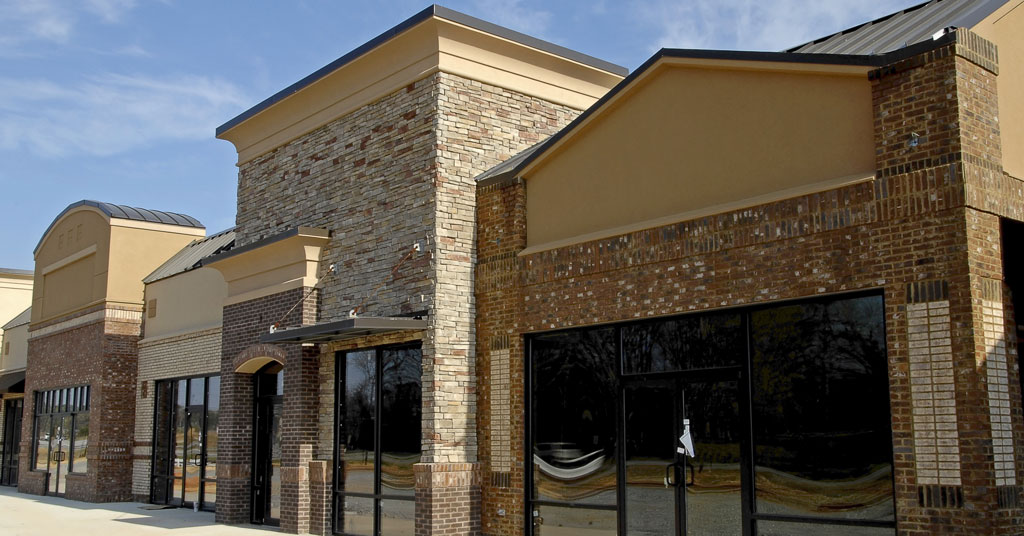Is Your Property Vacant, or Unoccupied? (Your Insurance Agent Wants To Know!)

“Many property provisions contain a vacancy provision. Two similar terms—vacant and unoccupied—have specific meanings in the language of insurance and are specifically defined in some policies. A vacant building contains little or no furniture or other personal property. Even if it is not vacant, a building is unoccupied when people are absent. The wording in many property insurance policies limits, reduces, or entirely eliminates coverage when a building has been vacant (or, in some forms, vacant or unoccupied) for a designated period of time such as 45 or 60 days.” —International Risk Management Institute
One unforeseen result of the pandemic that should be a real concern to franchisees is understanding whether your location is “vacant” or “unoccupied” if it is closed temporarily or permanently because of Covid-19.
While some businesses continue to operate successfully, many have closed temporarily, while others have sadly closed, never to reopen. For restaurants and bars in particular, some have been mandated to fully close and some are only partly open or operating solely as to-go locations. As a result of these mixed scenarios, occupancy status for insurance purposes is something that must be on the radar of franchisees, licensees, operators, and small-business owners.
Most businesses have experienced the effects of the pandemic and are working to innovate solutions. As insurance professionals, we often come across businesses and franchises in that innovation process and have discovered there is some confusion between what qualifies as “vacant property” and what is considered “unoccupied property” when it comes to coverage. This is proving true among many smaller franchised operations and privately owned businesses, where there is less guidance as to how these issues can affect property insurance.
Property insurance, whether for personal or commercial property, normally has limitations on vacant or possibly unoccupied property as to fire, vandalism, burglary, theft, and water damage. Each property insurance policy can and does read differently. It is critical to notify your insurance agent, in writing if possible, should your leased or owned property become vacant or unoccupied, and the effective date of that status. Your agent will be able to analyze your specific policy and assist in determining the status of your property from an insurance standpoint.
Typically, unoccupied property describes a location that someone or a business intends to return to, whereas a vacant property is one nobody intends to return to. Your insurance agent can help you with either situation. In most cases, this condition of vacancy or being unoccupied can be triggered in as short a time as 30 to 60 days, but it is totally dependent on what the individual insurance policy says.
Some coverages can be limited very quickly if utilities are not left on to protect the property from freezing, mold, or water damage. Also important is the amount of furniture, contents, and products that remain in the building as a consideration for the insurance company to understand if the location is merely unoccupied or if it is deemed vacant. Your experience with an insurance company can go much more smoothly if your agent is kept current on your plans and actions, particularly if there is a claim or loss.
In commercial properties, percentages of tenancy can affect coverage, particularly if the property falls below 30 percent occupied, another reason it is important to notify your agent of your occupancy status. The agent can and should be able to counsel you about vacancy insurance waivers or recommend policies that are designed or written for this type of situation. If you are dealing with shuttered property, it is important not to make it worse by risking an uninsured loss and further financial hardship.
ACTION STEPS
Our recommendations to determine the status of your property coverage are:
1) Work closely with your insurance agent.
2) If possible, keep the utilities on and monitor your location frequently.
3) Do not abandon the property; keep contents in on the property until you have thoroughly reviewed the situation with your agent and landlord.
4) Read and know your coverage.
5) Most importantly, notify your insurance agent of any changes of occupancy or change of use for a property.
Whether you own or operate a franchise or a small business, this easily overlooked insurance issue can become a big problem—or less of one if you take these actions now toward a more secure and successful future.
Doug Groves is the founder and principal of Program Insurance Group and its affiliate EZ Cert Management. He specializes in working with franchises and has more than 30 years of experience in the insurance industry.
Share this Feature
Recommended Reading:
FRANCHISE TOPICS
- Multi-Unit Franchising
- Get Started in Franchising
- Franchise Growth
- Franchise Operations
- Open New Units
- Franchise Leadership
- Franchise Marketing
- Technology
- Franchise Law
- Franchise Awards
- Franchise Rankings
- Franchise Trends
- Franchise Development
- Featured Franchise Stories
FEATURED IN

Multi-Unit Franchisee Magazine: Issue 1, 2021

$300,000
$500,000





 The multi-unit franchise opportunities listed above are not related to or endorsed by Multi-Unit Franchisee or Franchise Update Media Group. We are not engaged in, supporting, or endorsing any specific franchise, business opportunity, company or individual. No statement in this site is to be construed as a recommendation. We encourage prospective franchise buyers to perform extensive due diligence when considering a franchise opportunity.
The multi-unit franchise opportunities listed above are not related to or endorsed by Multi-Unit Franchisee or Franchise Update Media Group. We are not engaged in, supporting, or endorsing any specific franchise, business opportunity, company or individual. No statement in this site is to be construed as a recommendation. We encourage prospective franchise buyers to perform extensive due diligence when considering a franchise opportunity.